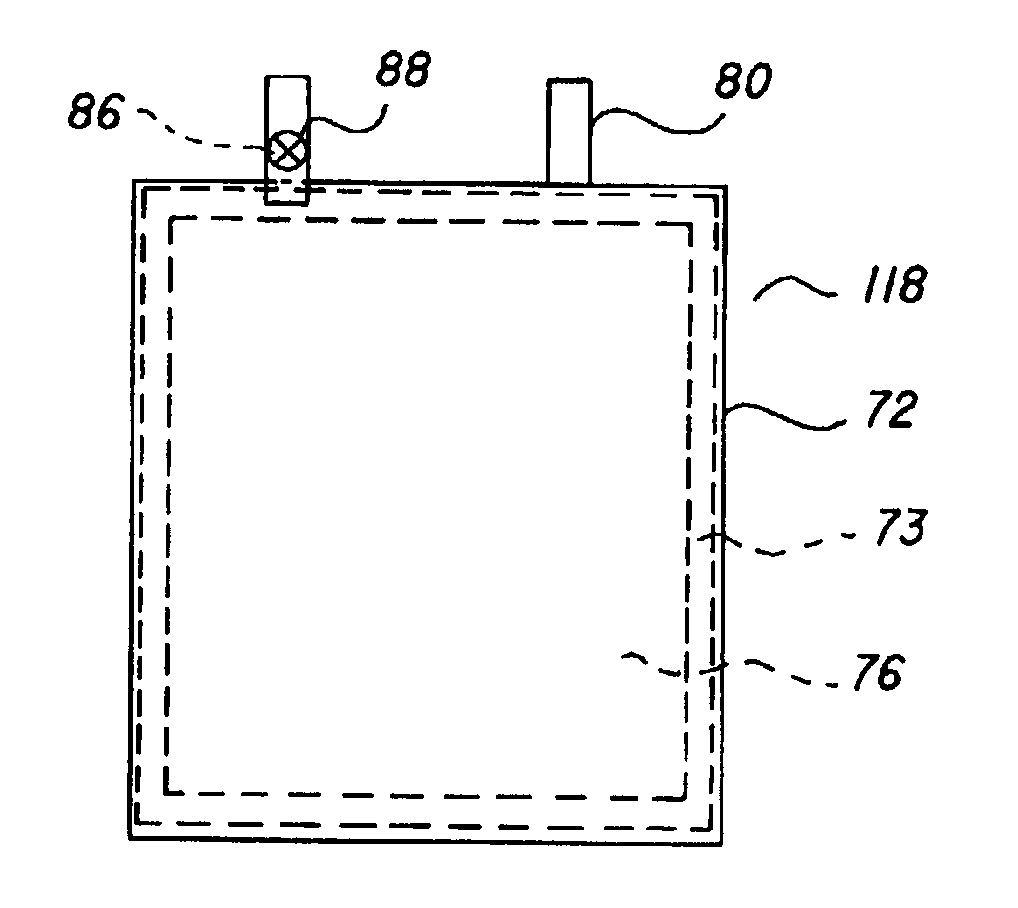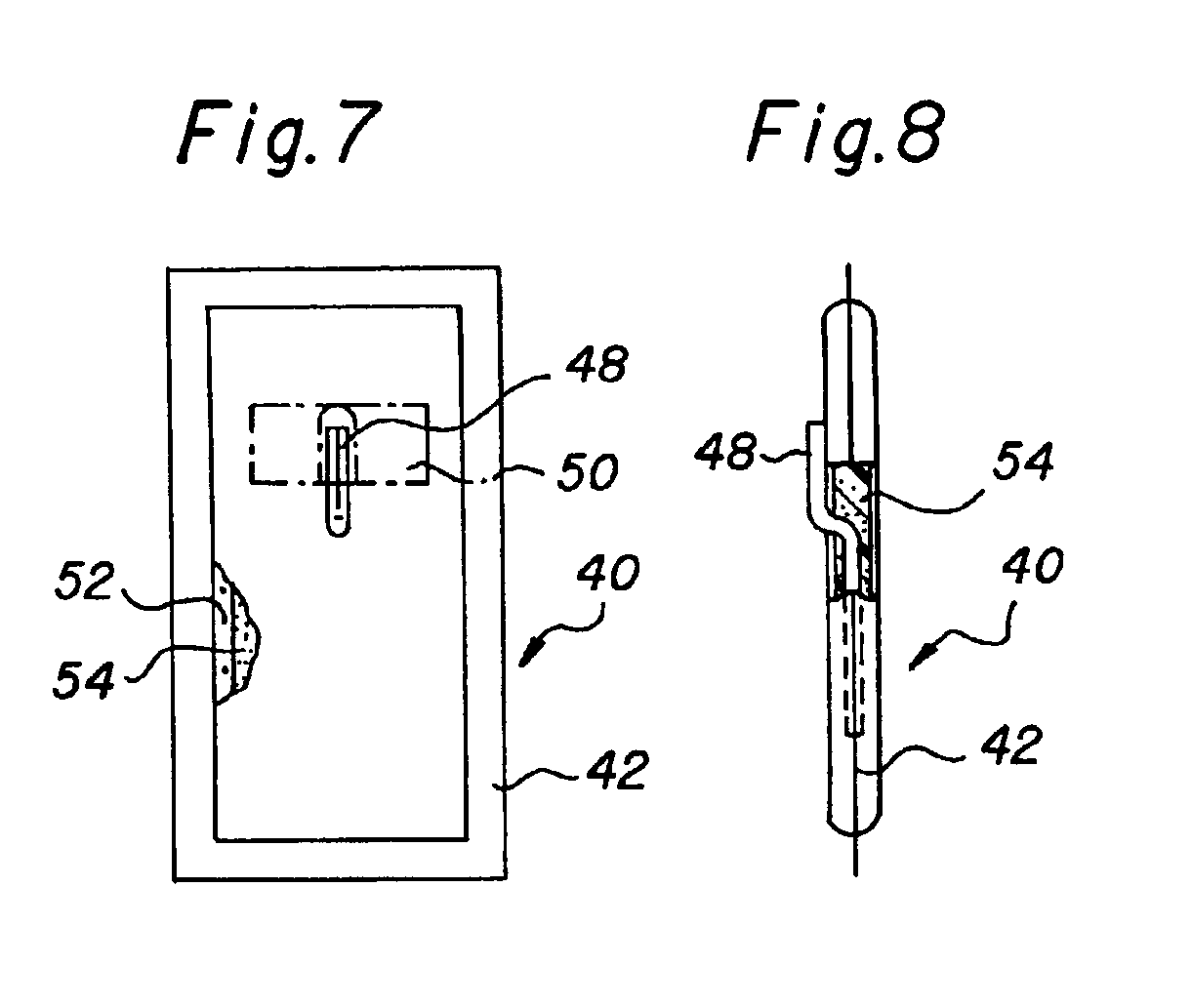Liquid fuel reservoir for fuel cells
- Summary
- Abstract
- Description
- Claims
- Application Information
AI Technical Summary
Benefits of technology
Problems solved by technology
Method used
Image
Examples
Embodiment Construction
[0061]Referring first to FIGS. 2 to 4, a cartridge container 20 defines a cavity holding a liquid fuel mixture 22. An outlet tube 24 extends into the container 20 through a cover 28 and the outlet tube 24 communicates between the cavity of the container 20 and outside of the container. An air inlet tube 26 also extends into the container 20 through cover 28. The air inlet tube 26 may include a one way valve (not shown) so as to prevent liquid from flowing from the container 20.
[0062]A wicking structure 32 is provided within the cavity of the container 20. The wicking structure 32 surrounds the open end of the outlet tube 24 within the cavity of the container 20. Liquid fuel wicks into the wicking structure 32.
[0063]In the embodiment shown in FIGS. 2 to 4, the wicking structure is a felted polyurethane foam shaped as a rectangular cube or box. For example, the structure is approximately 10 mm (width)×5 mm (thickness)×90 (height) mm, with the 90 mm height as the longest dimension of t...
PUM
 Login to View More
Login to View More Abstract
Description
Claims
Application Information
 Login to View More
Login to View More - R&D
- Intellectual Property
- Life Sciences
- Materials
- Tech Scout
- Unparalleled Data Quality
- Higher Quality Content
- 60% Fewer Hallucinations
Browse by: Latest US Patents, China's latest patents, Technical Efficacy Thesaurus, Application Domain, Technology Topic, Popular Technical Reports.
© 2025 PatSnap. All rights reserved.Legal|Privacy policy|Modern Slavery Act Transparency Statement|Sitemap|About US| Contact US: help@patsnap.com



